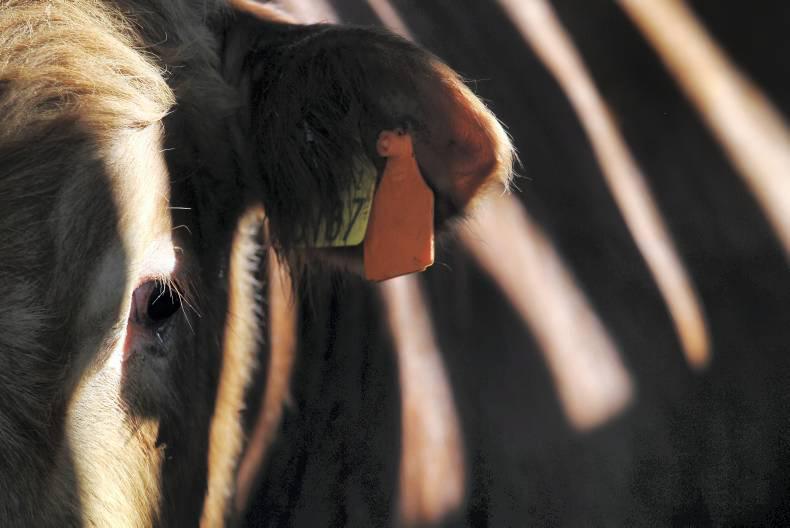While it is now over two years since the horsemeat scandal filled the TV news screens and print media across Britain and Ireland, the wheels of justice are continuing to grind on the issue.
The first conviction was earlier this year in England with Peter Boddy, the owner of a slaughterhouse which sold horsemeat to customers. Boddy admitted to the failure to keep adequate records which could trace the provenance of the meat. He was fined £4,000 for two counts while the slaughterhouse manager, David Moss, was convicted for falsifying an invoice and received a four month prison sentence suspended for two years in addition to a £4,000 fine.
Dutch horsemeat trader Willy Selten was convicted of forging invoices, labels and declarations and using forged documents at his trial in the Netherlands last month. He has received a two and a half year jail sentence. The court said that his business was found to have at least 336 tonnes of horsemeat passed through his two businesses between 2011 and 2012. 167 samples from his meat supplies in February 2013 and 35 tested positive for horse DNA, the court in Den Bosch heard.
The latest news is that a major police operation across seven EU member countries resulted in 26 arrests being made and has "succeeded in stopping an organised criminal network involved in trade in illegal horse meat."
The fact that this was announced by Eurojust, the EU organisation set up by the EU in 2002 to fight fraud and crime across the EU, on Friday last does not particularly link the incident to the scandal of two years ago but does suggest that the issue is ongoing. While Ireland is one of the seven EU countries involved, it is understood that the operation has centred on France, Belgium and the Netherlands with the ringleader thought to be Belgian.
Two years ago, the beef industry was caught by surprise at the infiltration of manufacturing beef with horsemeat. Yet in the world of fraud and criminality it was waiting to happen. Where there is an opportunity to pass of a cheaper product as a more expensive one, there are people that will do that. In Ireland, we are familiar with cigarette smuggling and diesel laundering. On a global scale passing off fake products as genuine luxury brands is big business.
In 2013 beef price had been on an upward trajectory for five years. At the same time the value of horses whose flesh is not dissimilar to beef particularly when frozen, collapsed with the ongoing recession across Europe. The perfect conditions were in place for a major meat fraud.
Normally the trade in counterfeit goods operated in a murky, under the counter underworld. However, the horsemeat issue was different as horsemeat was laundered as beef across the blue chip brands of the retail and food service sector. There was a time in 2013 when FTSE 100 listed companies were in panic at the potential damage to their reputation. The fact that traces of horsemeat were found so widely across the retail and food service sectors probably prevented any single outlet taking the full hit.
Many would argue of course that these same customers were complicit by virtue of the fact that they squeezed their suppliers so hard. The Dutch auction whereby suppliers were invited to bid downwards against each other was a technique used. In this environment, suppliers focused on how cheaply they too could source the ingredients, and so long as the paperwork was in order the providence of the actual product itself or where it came from was secondary.
The horsemeat scandal has been a watershed for product integrity in meat. The issue broke in Ireland yet as time has progressed it is clear that we were just part of a larger more complex chain, and now the focus is on mainland Europe. Processors are now ultra-cautious with the fear on product provenance going well beyond absence of horsemeat being passed off as beef.
Other areas where there is scope to upgrade beef into a higher value product are available such as passing it off as Aberdeen Angus when it is not. Many of not all factories now DNA test this. If there is a positive to emerge from this issue it is that there is still a value placed on the provenance of food. For a long period it seemed as if price was the only issue but this is the point where society said stop.
It is timely that in the weekend of the latest arrests in mainland Europe the new suckler scheme, Beef Data and Genomics Programme (BDGP) as broken by the Irish Farmers Journal, has an element that requires the taking of a tissue tag sample from animals selected for genotyping by ICBF. Ireland has the potential to assume a leading global position on traceability and product integrity for beef. It is ironic that ultimately we could be thanking the horsemeat incident for restoring customer and consumer focus on the quality and provenance of beef, not just its price!






 This is a subscriber-only article
This is a subscriber-only article










SHARING OPTIONS: